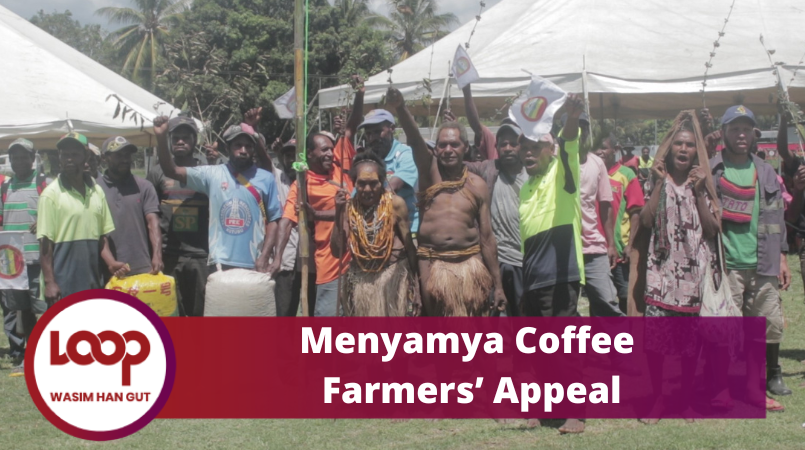
Coffee farmers in Morobe’s Menyamya district are calling on the provincial and national government to help boost their production.
Founder and chairman of Hamtai Coffee Group Ltd, Den Anas, said the people of Menyamya have been growing coffee since 1950, and have been cultivating and harvesting their produce without any form of support from the district, provincial and national government for 72 years.
Anas formed the Hamtai group in 2018, and he currently has a membership of 2,112 coffee farmers. Of that number, 713 graduated from quality training in March this year.
The coffee farmers are now appealing to relevant authorities to assist with much-needed facilities.
“Mipla nogat mill, mipla nogat export,” stated Anas. (We don’t have a mill, we don’t have an export company.)
“Kainkain man i go insait na ol paulim mi na dregim mi na mekim mi kamap olsem pipia blo ol.” (All sorts of individuals came in, confused me and treated me like rubbish.)
The coffee farmers have submitted their proposal to the governor for the financing of a coffee mill as well as a coffee export company.
Similar submissions have been prepared for the Deputy Prime Minister, John Rosso, and the new Minister for Coffee and Anglimp-South Waghi MP, Joe Kuli.
“Rot bagarap,” he outlined. “Kofi stap lo boda blo Gulf na Morobe, mipla save wokabaut tu deis. (The road has deteriorated. We walk for two days with our coffee, which is located on the Gulf-Morobe border.)
“Kisim kofi, lusim haus, wokabaut go silip kirap namel lo rot. (We leave with the coffee and sleep in the middle of the road.)
“Namba tri dei mipla save kamap lo rot blo kar na mipla sa salim kofi. (On the third day, we reach the main road where we sell our coffee.)
“Em mipla stap insait lo traipla mama blo bik bus. Plis, nesinol gavman, yupla bai helpim mi.” (We are in the middle of nowhere. National government please, help us.)
The coffee farmers go through the labour-intensive and difficult process of picking the cherries themselves, put them through the pulping machine, wash them then dry them.
Anas said if they bring the beans to Lae, they get at least K3 to K4 per kilo compared to when buyers go to their doorsteps, where they only get K1 to K2 per kilo.
The farmers issued their appeal during the recent Agri Assurance launch at Mutzing Station, in Markham district.
